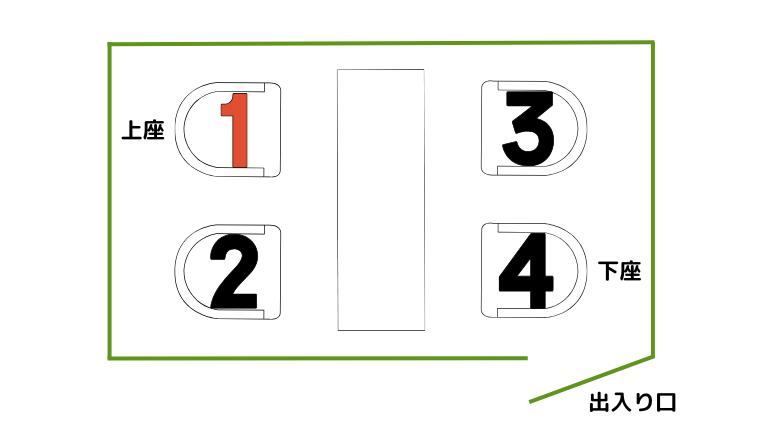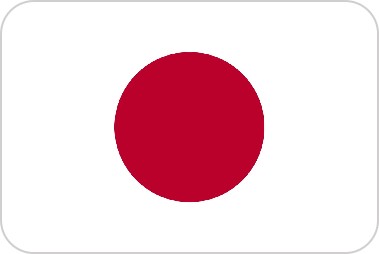Language
If you work in Japan, it’s important to know about workplace etiquette and Japan’s unique business culture. Japanese business etiquette in particular has many detailed rules, so you may be confused at first. However, learning basic business etiquette will leave a good impression at work and make your work go more smoothly. Greetings, time management, and the use of honorific language are particularly important in Japanese workplaces.
This article provides an easy-to-understand introduction to the business etiquette required in Japanese workplaces.
目次
Basics of Japanese Business Etiquette

Greetings
Greetings are very important in the Japanese workplace. If you don’t greet people, they may think you are unmotivated or rude. Make sure to greet them yourself, speaking out loud clearly. Don’t just say it, but make a better impression if you look the other person in the eye and greet them with a smile.
Make sure you know how to use different greetings depending on the situation.
Common business greetings
- When you arrive at work: Ohayou gozaimasu
- When passing someone in the office: Otsukaresama desu
- When you leave: Osakini shitsureishimasu
- When visiting a client: Osewani natteorimasu
If you want to know more about Japanese greetings, check out the articles below!
Let’s learn Japanese greetings! From basic greetings to business greetings
Use honorific language
In Japan, it is common to use honorific language when speaking to superiors and customers. In particular, if you work in a hotel or inn, polite customer service is required, so it is ideal to be able to use honorific language correctly. Using honorific language correctly puts customers at ease and also leads to a good impression.
Honorific language can be broadly divided into three types: “sonkei-go,” “kenjo-go,” and “teinei-go.”
Sonkei-go: Expressions that show respect by respecting the actions and state of superiors or customers.
- sure→ nasaru, dare
- kuru→ irasshiru
- miru→ goran ni naru
- iu→ ossharu
Kenjo-go: Expressions that elevate the other person by humbling yourself.
- suru→ itasu, sasete itadaku
- kuru→ mairu
- miru→ haikennsuru
- iu→ moushiageru
Teinei-go: Ending a sentence with “desu” or “masu” gives an overall polite impression, regardless of who you are speaking to or what you are saying.
- suru → shimasu
- kuru → kimasu
- miru → mimasu
- iu → iimasu
In business, you are also required to rephrase everyday words in different ways.
Example of paraphrases
- Sumimasen→Moushiwake arimasen
- Wakarimashita→Shouchi shimashita
- Dekimasen→Itashikanemasu
- Doudesuka→Ikagadesuka
- Dijoubu desuka→Yoroshii desuka
Being punctual
In Japan, being punctual is very important. If your workday starts at 9:00, don’t arrive at exactly 9:00, but arrive at the workplace 5 to 10 minutes early and be ready to start working. If you have a meeting or appointment, it is considered ideal to be at your desk 5 minutes before the appointed time. It is also important to keep to deadlines for submitting documents, etc. If you are going to be later than planned, let your boss know as soon as possible that you will be late. In Japan, it is considered that “being punctual = leading to trust,” so it is important to be conscious of time in any situation.
Be careful where you sit
In the Japanese business world, there are also rules regarding where to sit. When you are in a business meeting, conference, or dining with your superiors or business partners, be careful about where you sit. Generally, the seat furthest from the entrance is considered the “kamiza” (upper seat) and is reserved for people with higher positions or customers. On the other hand, the seat closest to the entrance is considered the “shimoza” (lower seat) and is generally reserved for subordinates and new recruits. If you’re not sure where to sit, start by sitting in the seat closest to the entrance.

Pay attention to grooming
In the Japanese workplace, you are expected to be well-groomed and clean.
Suits or office casual are the norm, and it is recommended to avoid brightly colored or designed clothes and large accessories. It is important to keep your shirt and tie wrinkle-free and your shoes polished. Keep your hair neat and tidy, and if it is long, tie it up to maintain a clean appearance. You also need to pay attention to the small details, such as making sure your nails are not too long or that your perfume is not too strong.
Simple and clean grooming is the norm in Japan, so it is important to avoid making others feel uncomfortable. Being well-groomed also makes it easier for people to evaluate your attitude toward work.
Conduct “Ho-Ren-So” (reporting, contacting, and consulting) frequently
“Ho-ren-so” refers to the three elements of “reporting,” “contacting,” and “consulting,” and is essential for the smooth running of work. In hospitality businesses such as hotels, staff can provide better service to customers by sharing information correctly among themselves.
- Reporting: This mainly happens when a subordinate tells their superior about the progress or results of work.
- Contacting: This happens when you convey necessary information not only to your superior, but also to colleagues and people in other departments.
- Consulting: This happens when you ask your superior or colleagues for advice when a problem occurs or when you are unable to solve the problem on your own.
By doing the reporting, contacting, and consulting properly, you can prevent mistakes and work smoothly as a team. In Japanese workplaces, it is important to “immediately report, contact, and consult if something happens,” so be sure to keep this in mind at all times.
When exchanging business cards, the person of lower rank should give first.

In Japan, it is the rule that the person of lower rank should hand over their business card first.
When handing over your business card, hold it with both hands, look the other person in the eye and bow slightly. It will come across as more polite if you introduce yourself by saying, “I’m △△ from ○○ Company. I look forward to working with you.” It is also good manners for the recipient to receive the card with both hands and add, “Thank you for your help.”
There are other business manners and cultures unique to Japan!

In addition to this, Japan has a variety of business etiquette and culture.
Don’t call people by their first names
Close friends call each other by their first names, but in the Japanese business world, it is standard to not call people by their first names, but to call them by their surname with “san” added. Depending on the company, some people may call someone by their surname with their job title added, such as “Manager XX”. If the person is a customer or business partner, they should be called by their surname with “sama”.
Refrain from body contact and body language
In Japan, there is almost no custom of interacting with people, not just in business. Avoid touching the other person’s body, and only shake hands when asked. Body language is also not used much in business, and the same movements can have different meanings depending on the country, so it is safer not to use them to avoid misunderstandings.
Do not express directly
In Japan, choosing your words carefully is also considered a sign of consideration for the other person, and you may use roundabout expressions when conveying something difficult to say. Especially in business situations, being too direct can be perceived as rude to the other person, so it is important to choose your words carefully. For example, rather than saying “I can’t do it,” saying “It might be a little difficult” will give a softer impression. When speaking to customers, instead of saying “Please stop” if you don’t want them to do something, it is better to say “Please refrain from doing it,” which will not cause any offense. Also, using cushion words such as “Excuse me” or “If you don’t mind” before the main subject will make it easier to convey your consideration.
As you can see, there are many more small details of manners. Even if you don’t remember everything, it is important to have a firm grasp of the basics and be considerate so as not to make the other person feel uncomfortable. Let’s learn little by little as we work.
Follow Japanese business etiquette and build trusting relationships

This time, we introduced Japanese business etiquette. There are various business etiquette in Japan, but if you can get the basics down, you can work without any problems. It may seem difficult at first, but try to be conscious of simple things like greetings and being punctual. Observing manners will give a good impression and make it easier to build trust in the workplace.
バリプラGlobal supports foreigners who want to work in hotels and inns in Japan. We provide various support so that you can work in Japan with peace of mind, such as visa applications, immigration procedures, and daily life. We introduce jobs that specialize in the “restaurant” and “accommodation” industries, so if you are interested, please check out the links below!
「外食業」「宿泊業」に特化した外国人の就職サポート バリプラGlobal
- 26 articlesRecent posts
- ホテルコンシェルジュとはどんな職業?仕事内容や必要なスキルを紹介!【外国人向け】
- ホテルの事務職の仕事内容を紹介!どんなスキルが求められる?【外国人向け】
- Công việc marketing khách sạn bao gồm những gì? Giới thiệu mô tả công việc và mức lương hàng năm cho người nước ngoài!
- Khách sạn có những vị trí quản lý nào?Giới thiệu dễ hiểu về công việc và mức lương dành cho người nước ngoài muốn làm việc tại Nhật Bản
- ホテルのマーケティングは何をする?仕事内容や気になる年収を外国人向けに紹介!
- 7 articlesRecent posts
- Bạn nên trả lời thế nào khi được hỏi về điểm mạnh và điểm yếu trong buổi phỏng vấn? Giải thích dễ hiểu cho người nước ngoài! [Có đáp án mẫu]
- [Dành cho người nước ngoài] Bạn nên mang theo những gì khi đi phỏng vấn khách sạn? Một bản giới thiệu rõ ràng về những vật dụng hữu ích!
- 面接で長所と短所を聞かれたらどう答える?外国人向けに分かりやすく紹介!【回答例付き】
- 【外国人向け】ホテルの面接で必要な持ち物は?あると便利なアイテムも分かりやすく紹介!
- [Dành cho người nước ngoài] Chuẩn bị phỏng vấn xin việc làm trong ngành khách sạn! Những câu hỏi thường gặp và những điểm chính để được tuyển dụng
- 7 articlesRecent posts
- 【Ứng xử qua điện thoại bằng tiếng Nhật】Giới thiệu các phép lịch sự và cụm từ mà người nước ngoài nên biết!
- 【日本語の電話対応】外国人が知っておきたいマナーとフレーズを紹介!
- Giới thiệu những điều cơ bản về cách viết email công việc cho người nước ngoài! [Có câu ví dụ]
- ビジネスメールの基本の書き方を外国人向けに紹介!【例文付き】
- Nghi thức kinh doanh của người Nhật là gì? Những quy tắc và văn hóa cơ bản bạn nên biết trước khi làm việc
- 3 articlesRecent posts
- 7 articlesRecent posts
- Hướng dẫn đi tàu điện Nhật Bản dễ hiểu! Hãy tuân thủ đúng quy tắc khi sử dụng tàu điện [Dành cho người nước ngoài]
- Giới thiệu luật giao thông Nhật Bản! Những điều cần biết để sống an toàn [Dành cho người nước ngoài]
- 日本の電車の乗り方をわかりやすく紹介!マナーを守って利用しよう【外国人向け】
- 日本の交通ルールを紹介!安全に暮らすために知っておきたいこと【外国人向け】
- Nếu người nước ngoài bị mất hộ chiếu ở Nhật Bản thì sao? Một lời giải thích đơn giản về những việc cần làm
- 7 articlesRecent posts
- [Dành cho người nước ngoài] Giới thiệu dễ hiểu về các thuật ngữ kinh doanh thường dùng được viết bằng chữ katakana!
- 【外国人向け】よく使われるカタカナのビジネス用語をわかりやすく紹介!
- Một giới thiệu dễ hiểu về thuật ngữ dịch vụ khách hàng khách sạn dành cho người nước ngoài! Bao gồm các câu ví dụ sẵn sàng sử dụng
- ホテルの接客用語を外国人向けに分かりやすく紹介!すぐに使える例文付き
- Hãy cùng học cách chào hỏi của người Nhật! Từ lời chào cơ bản đến lời chào kinh doanh
- 7 articles
- 21 articles
- 9 articles













